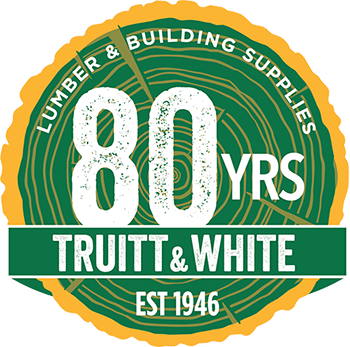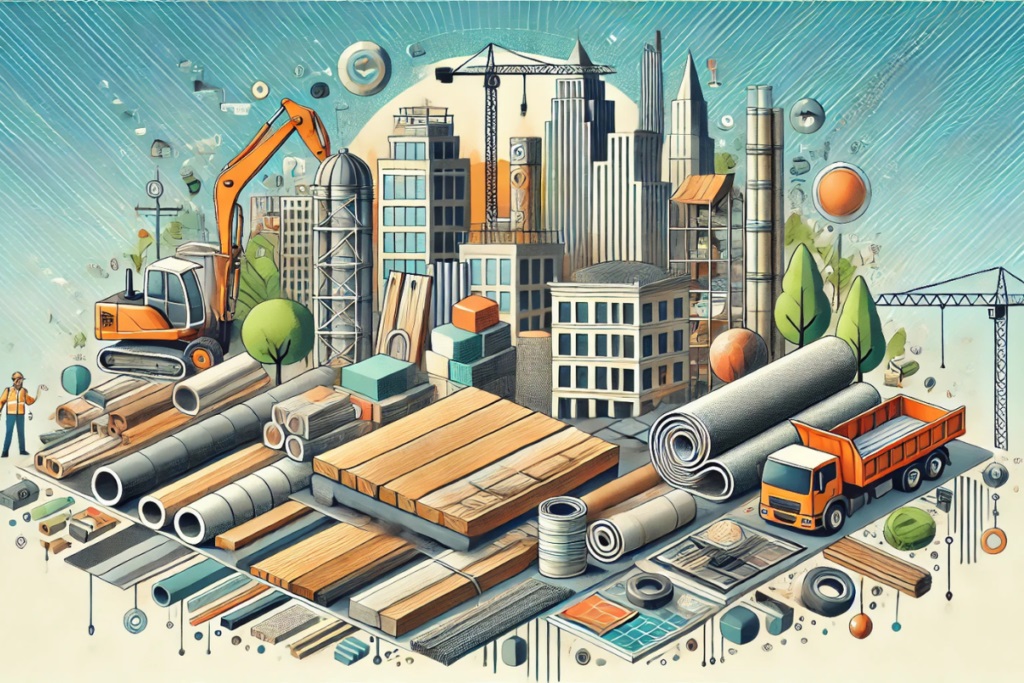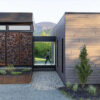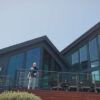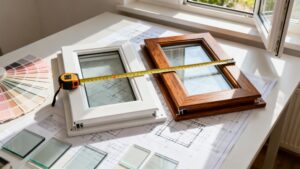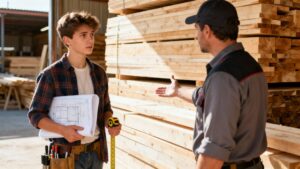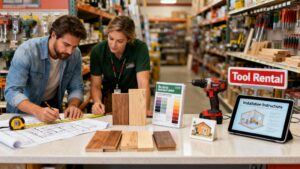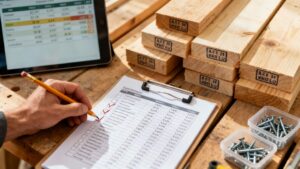As a contractor, selecting durable and long-lasting materials is essential for the success and longevity of any project. Whether you’re working on a residential renovation, a commercial build, or a large infrastructure project, the materials you choose will determine your work’s overall quality, safety, and durability. Choosing the right materials becomes even more critical for contractors in San Francisco, where the climate, geography, and local regulations play a significant role in construction.
In this guide, we will explore how to choose durable and long-lasting materials that meet your project’s needs, while also considering the unique conditions of the San Francisco area. From understanding the local environment to selecting the right suppliers, this guide will help you make informed decisions for your next project.
1. Consider the Local Climate
San Francisco’s unique climate plays a crucial role in the durability of construction materials. The city experiences a Mediterranean climate with mild, wet winters and dry summers. Additionally, the area is known for its fog, salt-laden air from the Pacific Ocean, and occasional strong winds. These conditions can cause materials to degrade faster if they are not suited for the environment.
Materials to Consider:
- Weather-Resistant Wood: Wood is a popular choice for many construction projects. However, not all wood types can handle the common moisture and fog in San Francisco. Consider using weather-resistant wood, such as cedar, redwood, or pressure-treated lumber, which is resistant to rot and decay.
- Concrete with Additives: For structures that require concrete, consider using a mix with water-reducing or air-entraining additives. These can enhance the material’s durability in wet conditions and prevent cracking due to temperature fluctuations.
- Corrosion-Resistant Metals: For exterior applications such as railings, structural supports, or window frames, use metals like stainless steel, aluminum, or galvanized steel. These materials are resistant to rust and corrosion, making them ideal for projects exposed to salt air from the nearby ocean.
Pro Tip: Always factor in the specific microclimate of your job site. San Francisco’s neighborhoods can vary significantly in terms of temperature, humidity, and wind exposure, which can affect the longevity of certain materials.
2. Understand Building Codes and Regulations
San Francisco’s building codes are rigorous, especially because of the city’s seismic activity. Contractors must consider durability and compliance with local regulations to ensure safety and avoid costly setbacks.
Materials to Consider:
- Seismic-Resistant Steel: Choose materials that can withstand seismic forces for structural components. Steel reinforced with special seismic-resistant properties is a good option, as it can absorb and dissipate energy from earthquakes.
- Flexible Framing Systems: Timber framing systems with flexible joints are a good choice for homes in earthquake-prone areas, as they can flex slightly without breaking. Make sure to use earthquake-rated framing connectors to ensure compliance with local codes.
- Engineered Wood Products: Engineered wood, such as laminated veneer lumber (LVL) or cross-laminated timber (CLT), is strong and flexible. Because it can handle vertical and lateral loads, it is often used in structural applications for buildings in seismic zones.
Pro Tip: Work closely with local building authorities and inspectors to stay updated on San Francisco’s evolving building codes. This will help you avoid penalties and ensure that your materials and construction practices meet the latest standards.
3. Choose Materials that Minimize Maintenance
In a bustling city like San Francisco, where contractors are constantly working on new projects, a client’s last desire is to deal with high-maintenance materials. Choosing materials that require minimal upkeep will increase client satisfaction and reduce the risk of long-term problems.
Materials to Consider:
- Composite Decking: Composite materials from recycled wood and plastic are a great alternative to traditional wood for outdoor spaces like decks. They resist fading, cracking, and moisture damage, requiring little maintenance over the years.
- Fiber Cement Siding: Fiber cement is a durable alternative to wood or vinyl siding. It resists weather damage, insects, and rot, making it an ideal choice for the foggy and occasionally windy conditions in San Francisco. It also requires minimal upkeep compared to wood siding.
- Vinyl Windows: For windows, vinyl is a durable and low-maintenance material that performs well in San Francisco’s climate. Unlike wood, which may need to be repainted and resealed over time, vinyl windows are moisture-resistant and require minimal maintenance.
Pro Tip: Offer your clients long-term solutions. Recommending low-maintenance materials can save them time and money in the future, leading to better reviews and repeat business for your contracting services.
4. Sustainability and Eco-Friendly Options
San Francisco values sustainability and environmental responsibility highly. As a contractor, selecting eco-friendly and sustainable materials meets client demand and supports the city’s goals of reducing carbon emissions and promoting green building practices.
Materials to Consider:
- Recycled Steel: Steel is one of the most recycled materials in the world. Using recycled steel in construction projects ensures durability and reduces the environmental impact of the build.
- Bamboo: Bamboo is an excellent sustainable alternative to traditional hardwoods. It grows quickly and is highly durable, making it suitable for flooring, cabinetry, and even structural applications in some cases.
- Green Insulation: Eco-friendly insulation options, such as recycled denim or cellulose, offer excellent thermal performance and reduce a project’s environmental footprint. In San Francisco, where energy efficiency is a top priority, these materials can help lower heating and cooling costs while meeting sustainability goals.
Pro Tip: Consider working toward green building certifications, such as LEED (Leadership in Energy and Environmental Design). Offering eco-friendly construction solutions can differentiate your business and appeal to environmentally conscious clients in the San Francisco area.
5. Work with Trusted Suppliers
As a contractor, the quality of your materials is only as good as your supplier. In San Francisco’s fast-paced construction market, having reliable, local suppliers is essential to keeping your projects running smoothly and on schedule.
Benefits of Working with Local Suppliers:
- Faster Deliveries: Local suppliers can deliver materials more quickly, which can help you avoid project delays.
- Local Knowledge: Local suppliers understand the specific needs of contractors working in the Bay Area, from the unique weather challenges to local building codes. They can provide tailored recommendations based on your project’s location.
- Stronger Relationships: Building a strong relationship with local suppliers like Truitt & White in the East Bay area will ensure you receive priority service and access to high-quality materials.
Pro Tip: Whenever possible, prioritize suppliers specializing in your specific needs. For example, if you frequently work on seismic retrofitting, find suppliers with a full range of earthquake-resistant materials and accessories.
6. Balance Durability and Aesthetics
While durability is key, aesthetics also play a vital role in client satisfaction. In a city like San Francisco, known for its stunning architecture and historic charm, clients will want functional and beautiful materials.
Materials to Consider:
- Natural Stone: For clients seeking a high-end look that lasts, natural stone options like granite or slate are excellent choices for countertops, flooring, and exterior facades. These materials are incredibly durable and can add timeless beauty to any project.
- Hardie Plank Siding: For homes that must withstand the San Francisco climate while maintaining curb appeal, Hardie Plank Siding offers the best of both worlds. It mimics the appearance of traditional wood siding but is made from fiber cement, making it far more durable and weather-resistant.
Pro Tip: Discuss material choices with your clients early in the design process to balance durability with their aesthetic preferences. Provide samples to help them visualize the final product.
7. Plan for Future-Proofing
The materials you choose today will affect how a structure performs for decades. In San Francisco, where real estate values are consistently high, future-proofing your projects with long-lasting, energy-efficient materials will help homeowners retain their property value and avoid costly repairs in the future.
Materials to Consider:
- Solar-Ready Roofing: As solar energy becomes more popular in the Bay Area, installing solar-ready roofing materials, such as solar tiles or panels, ensures that homes can easily incorporate renewable energy solutions.
- High-Performance Windows: Installing double- or triple-pane windows with low-E coatings ensures energy efficiency, reduces noise, and enhances comfort for years.
Pro Tip: Stay informed on future trends in construction and sustainability. Building for the future will impress clients and position your contracting business as forward-thinking and reliable.
Conclusion
Choosing durable and long-lasting materials is essential for delivering quality projects that stand the test of time, particularly in a city like San Francisco, where climate, geography, and sustainability are key considerations. By selecting the right materials for the job and working with trusted local suppliers, contractors can ensure that their projects meet the highest durability, efficiency, and client satisfaction standards.
Truitt & White is your go-to source for top-quality materials and expert advice for contractors in San Francisco and the surrounding areas. Contact us today or visit our location to find everything you need for your next construction project.

